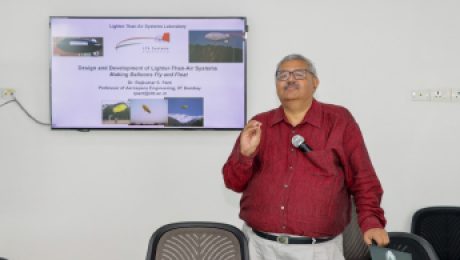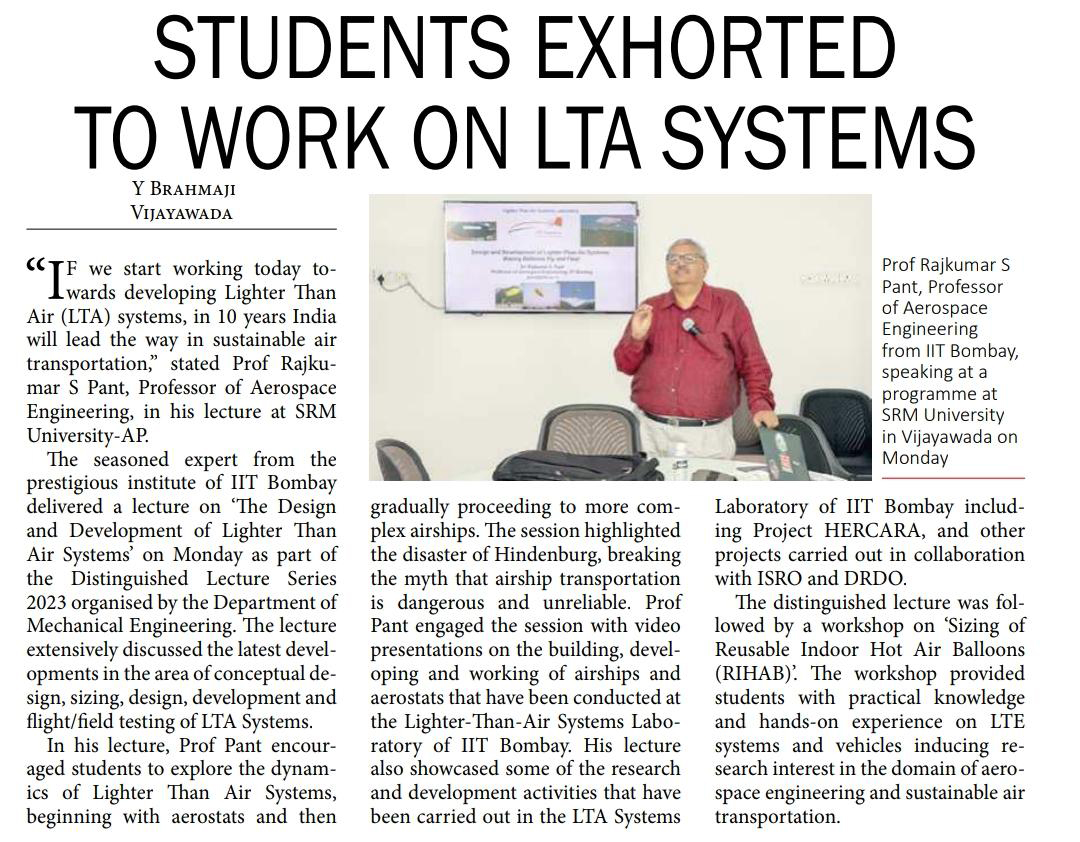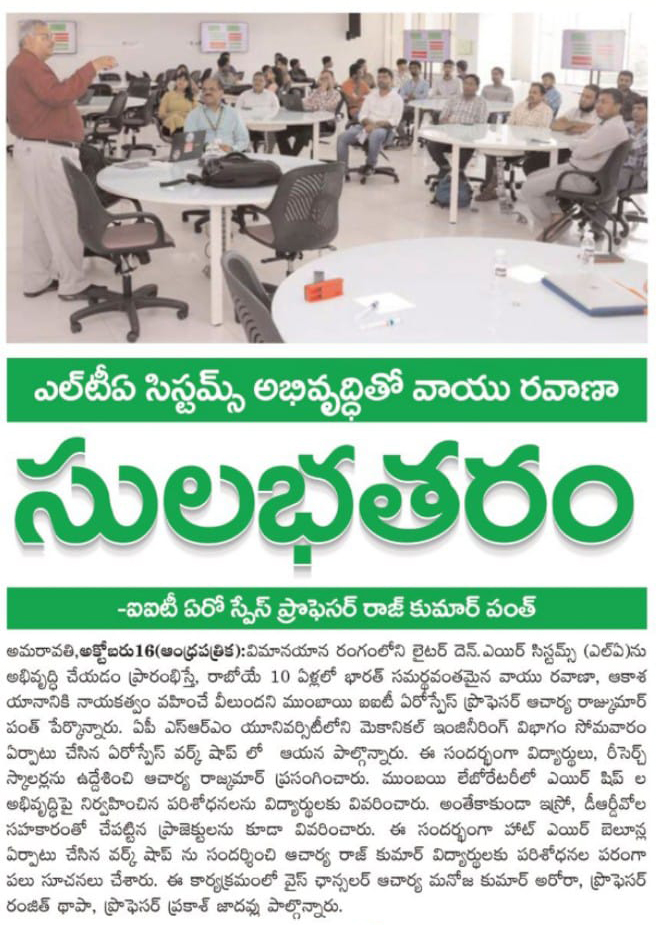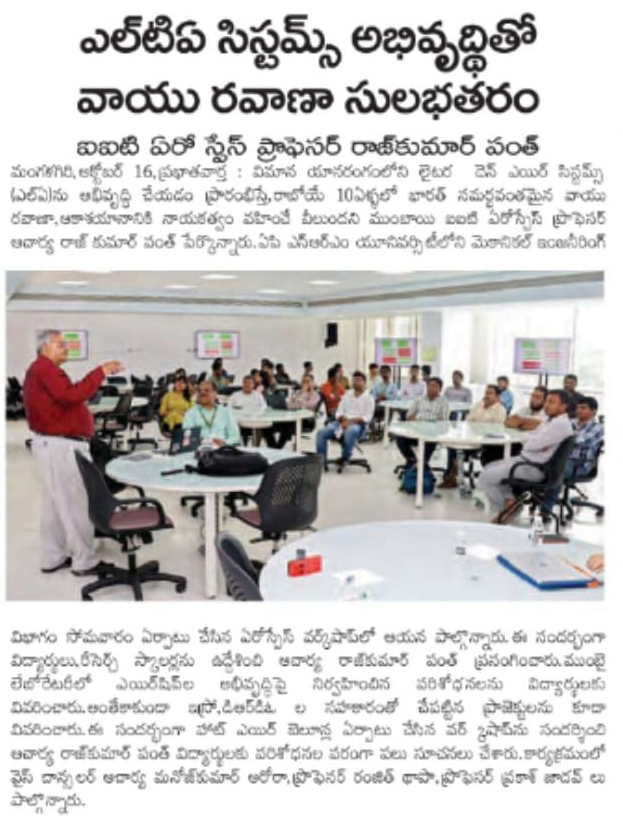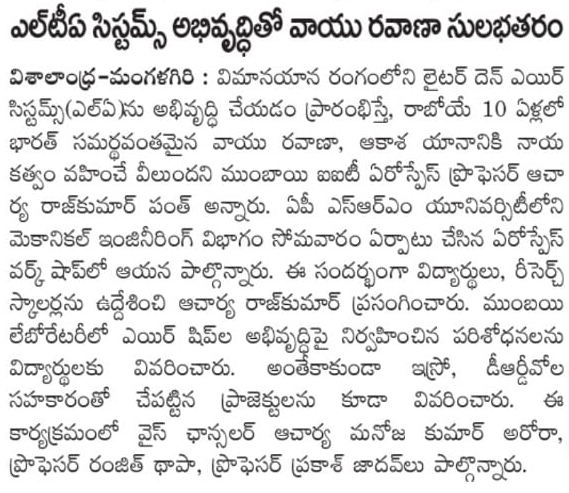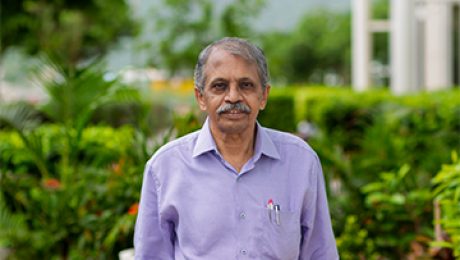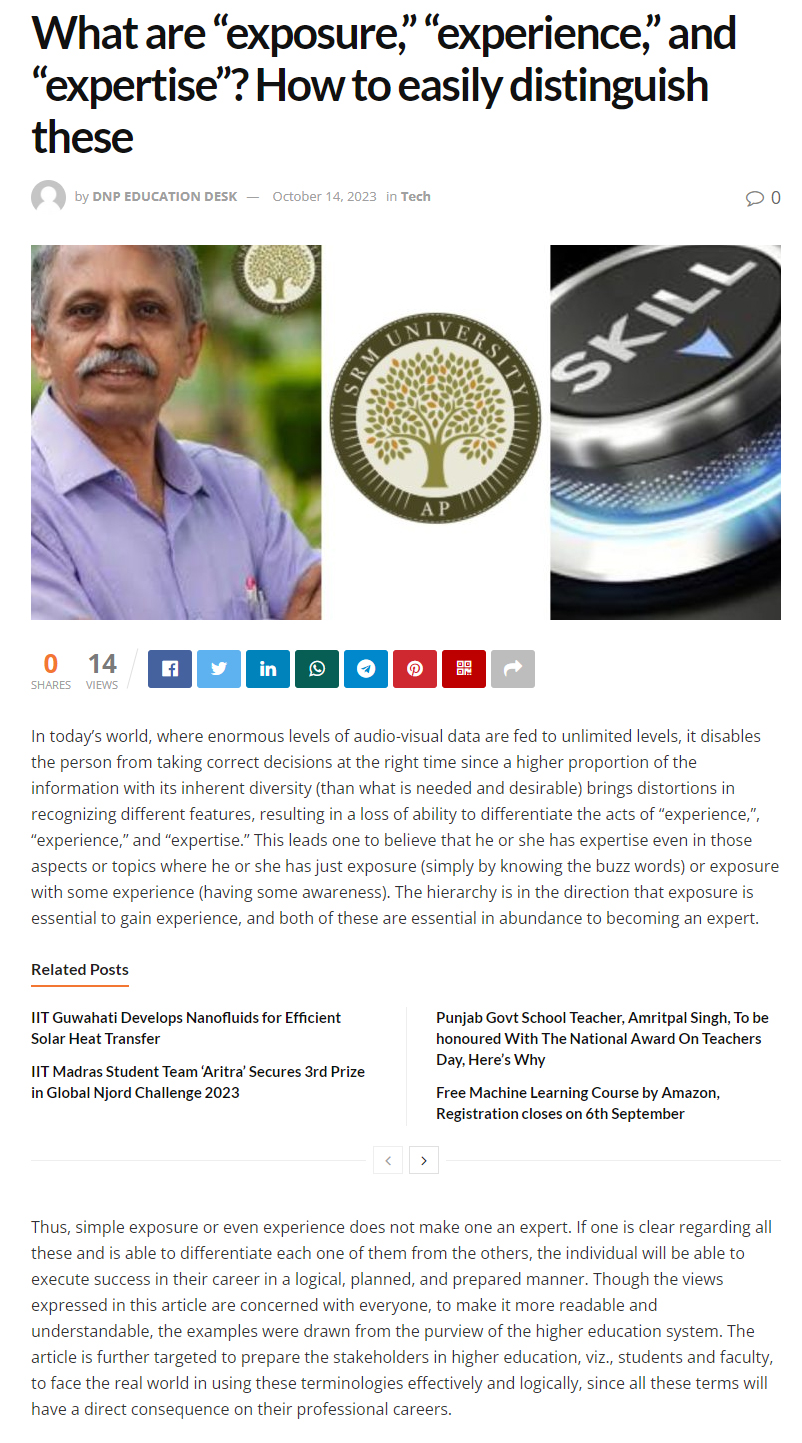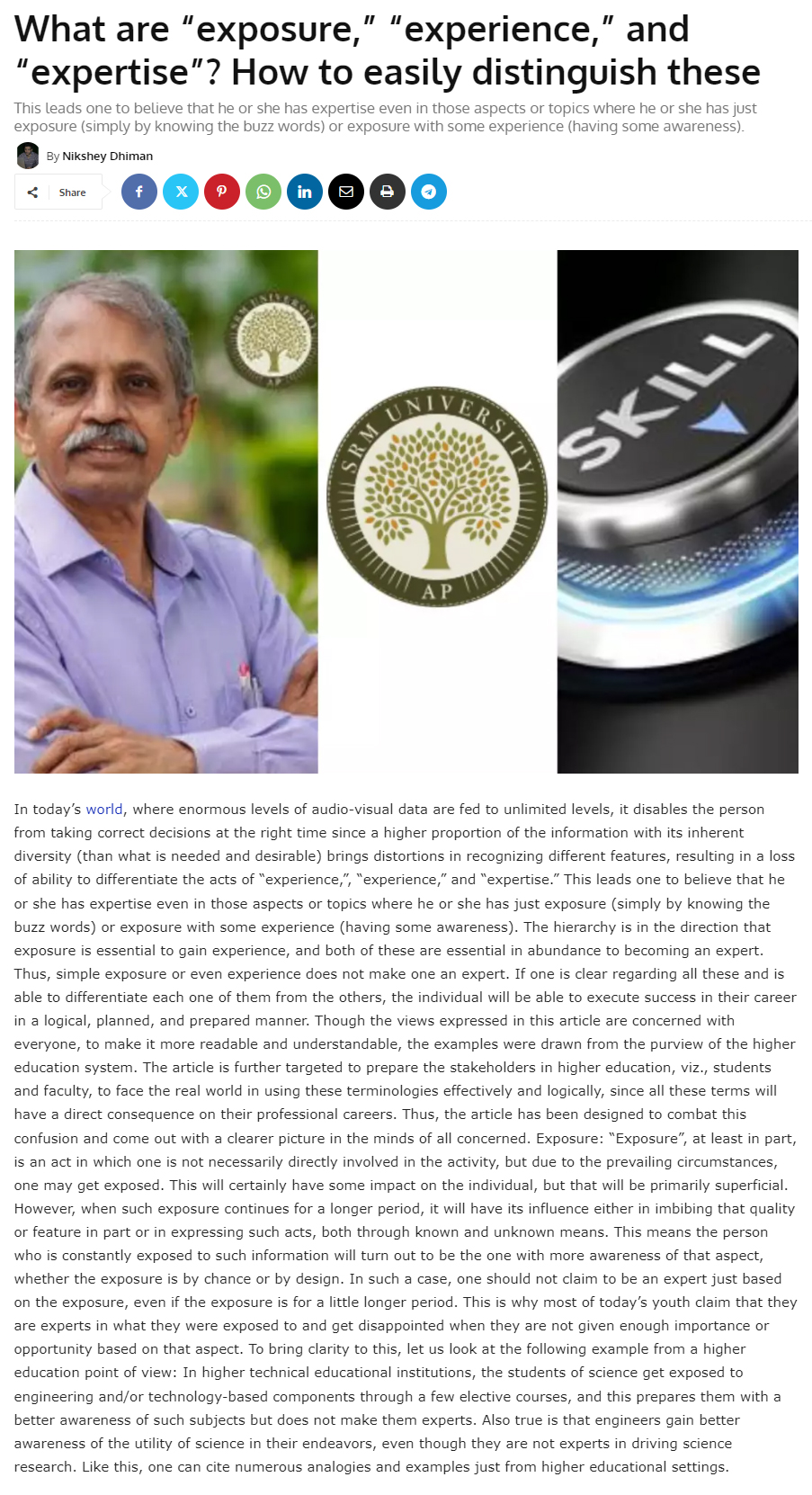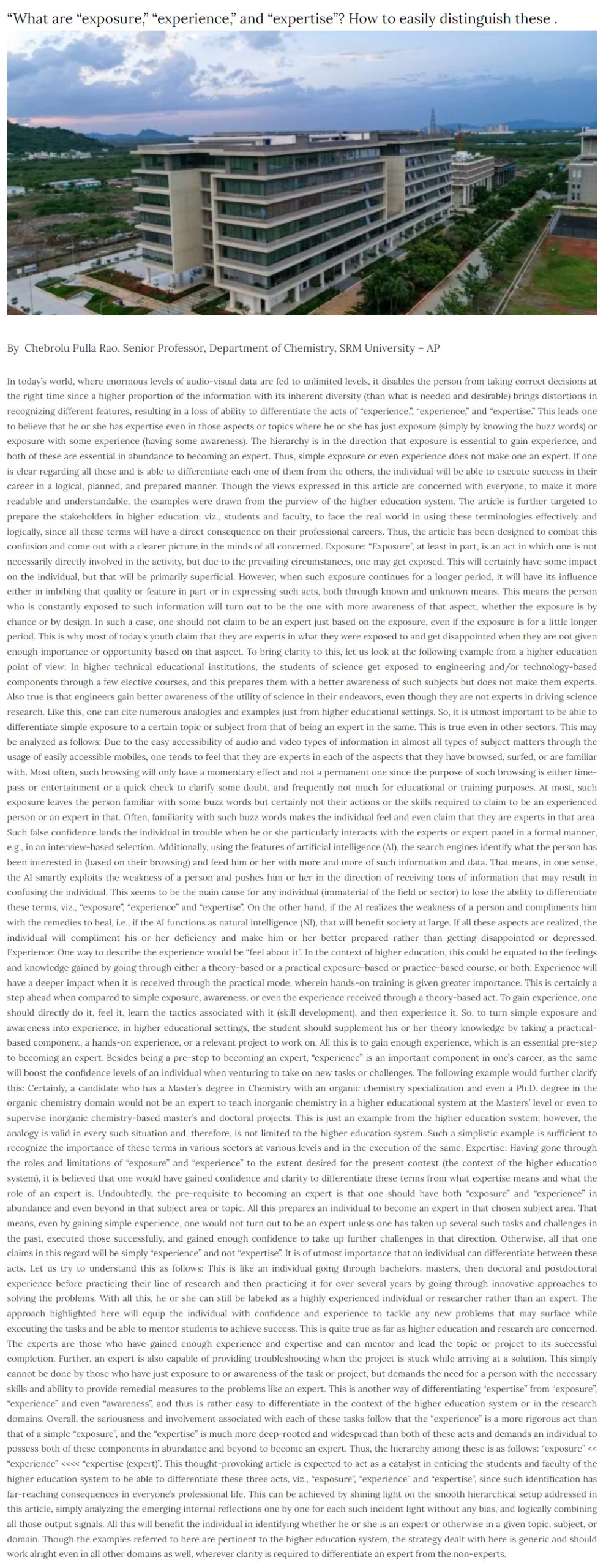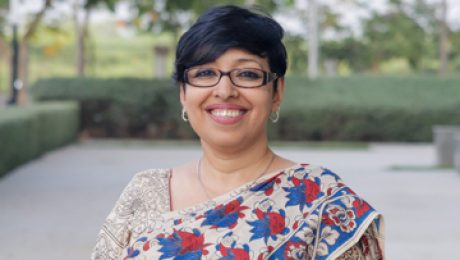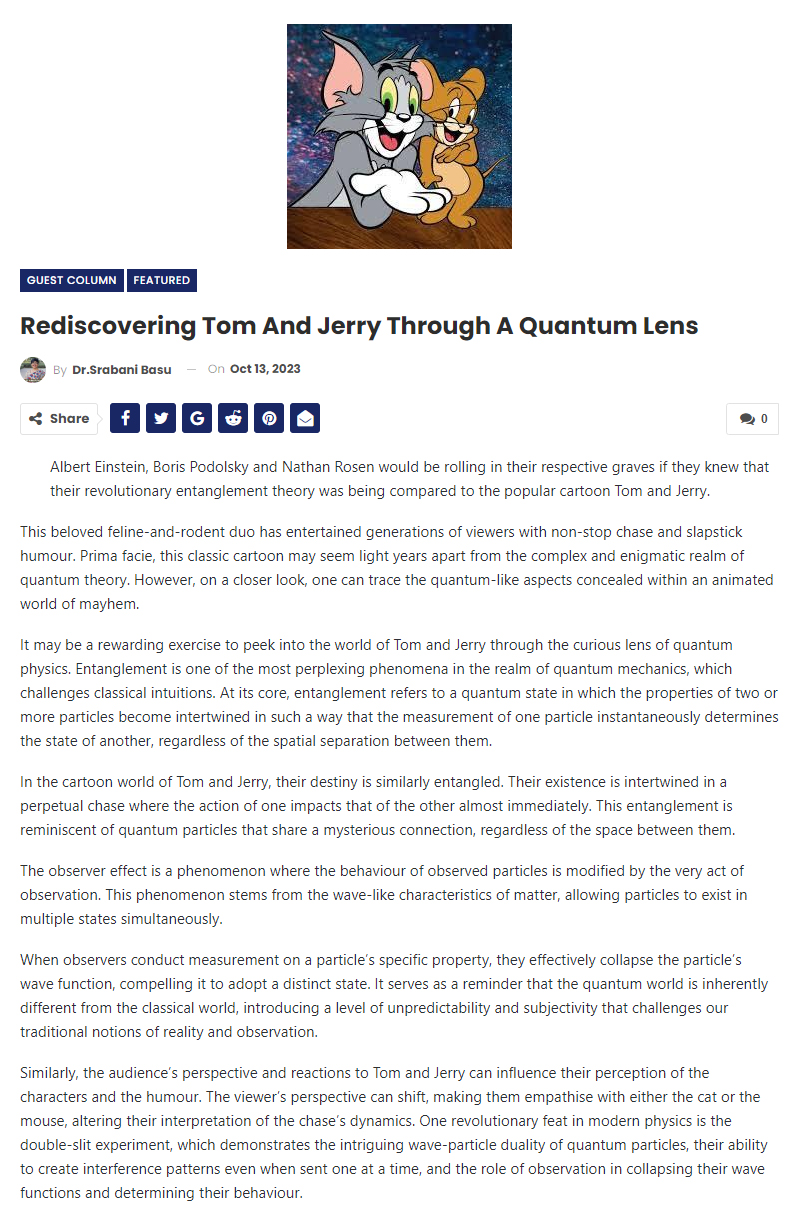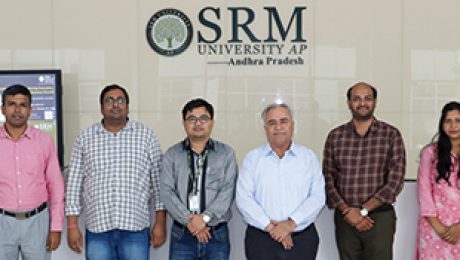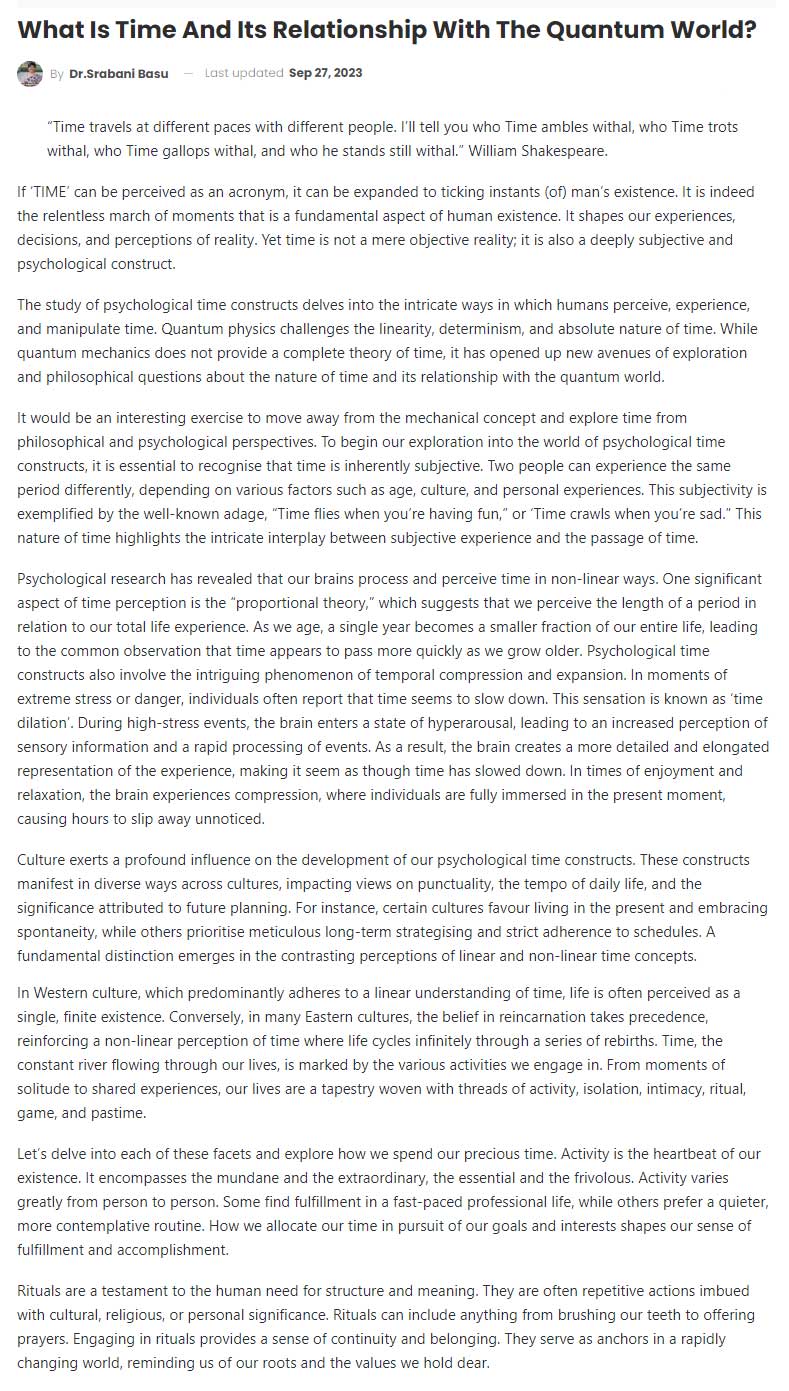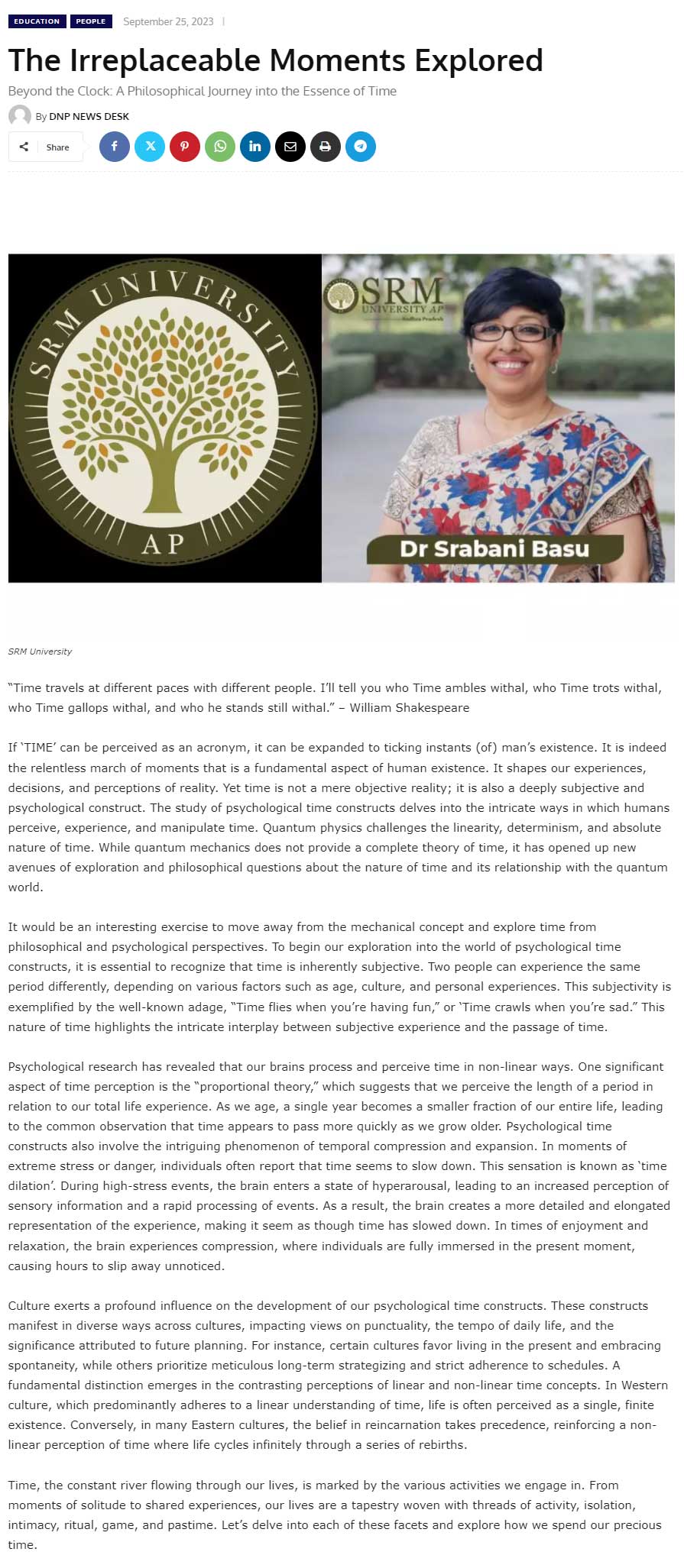Distinguished Lecture by Prof Raj Kumar Pant
- Published in Newsroom
ALOHA 2023
The Deccan Chronicle
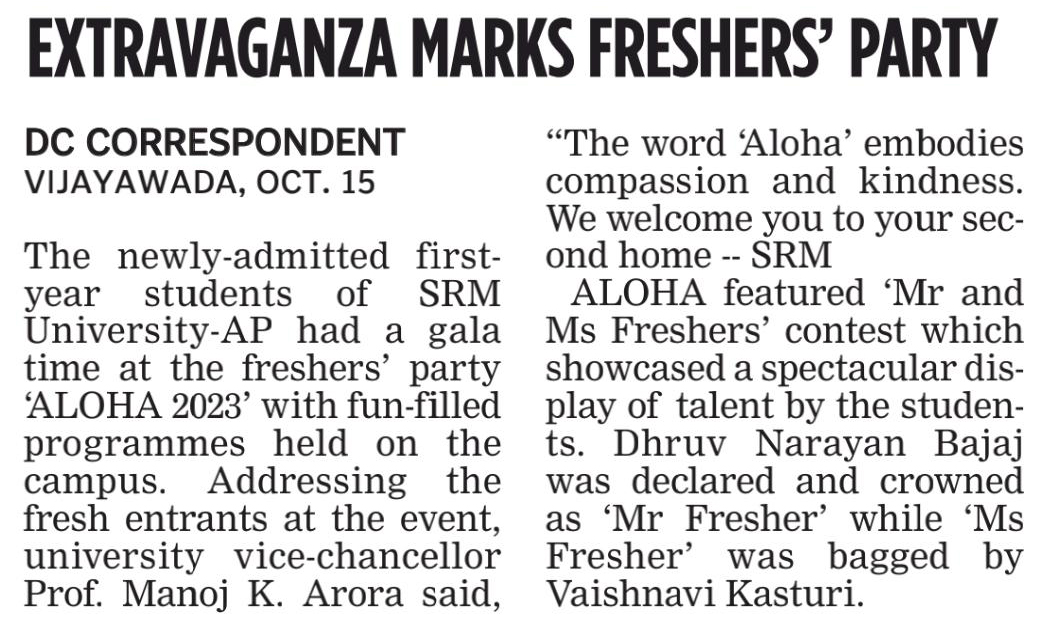
The Hindu
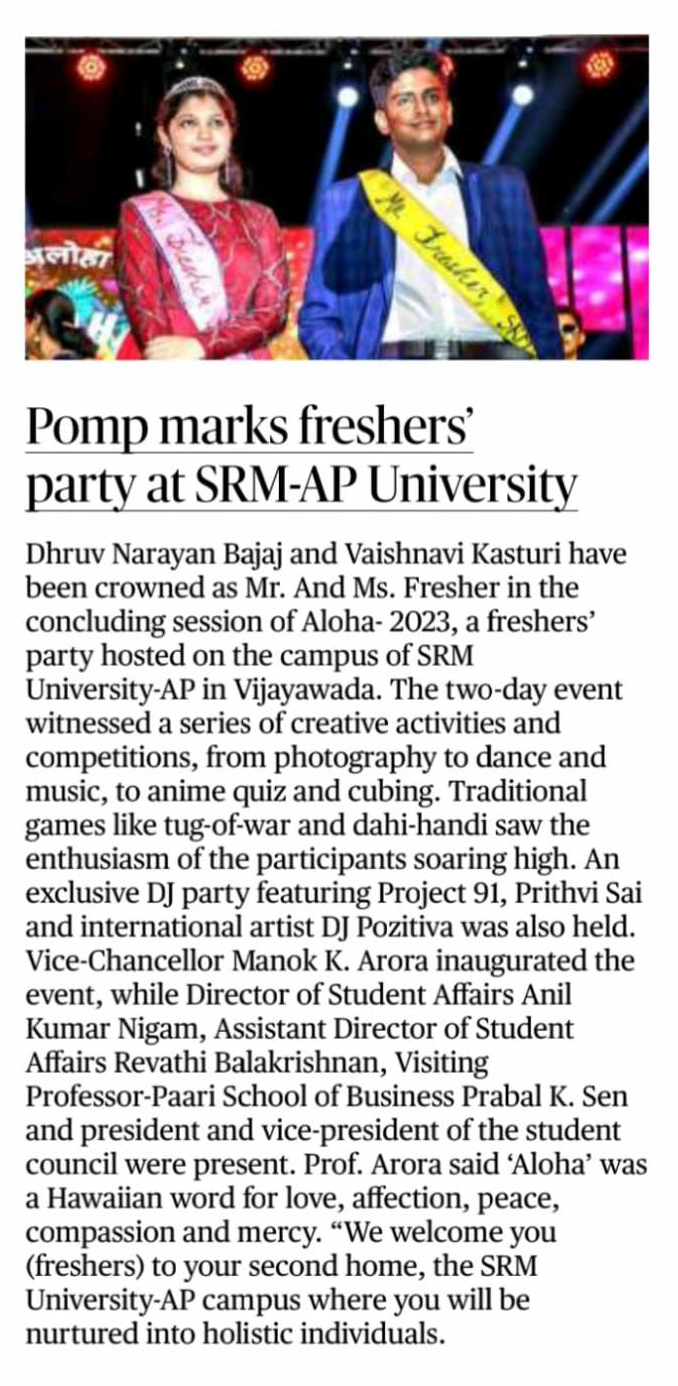
The New Indian Express

The Hans India

The Pioneer
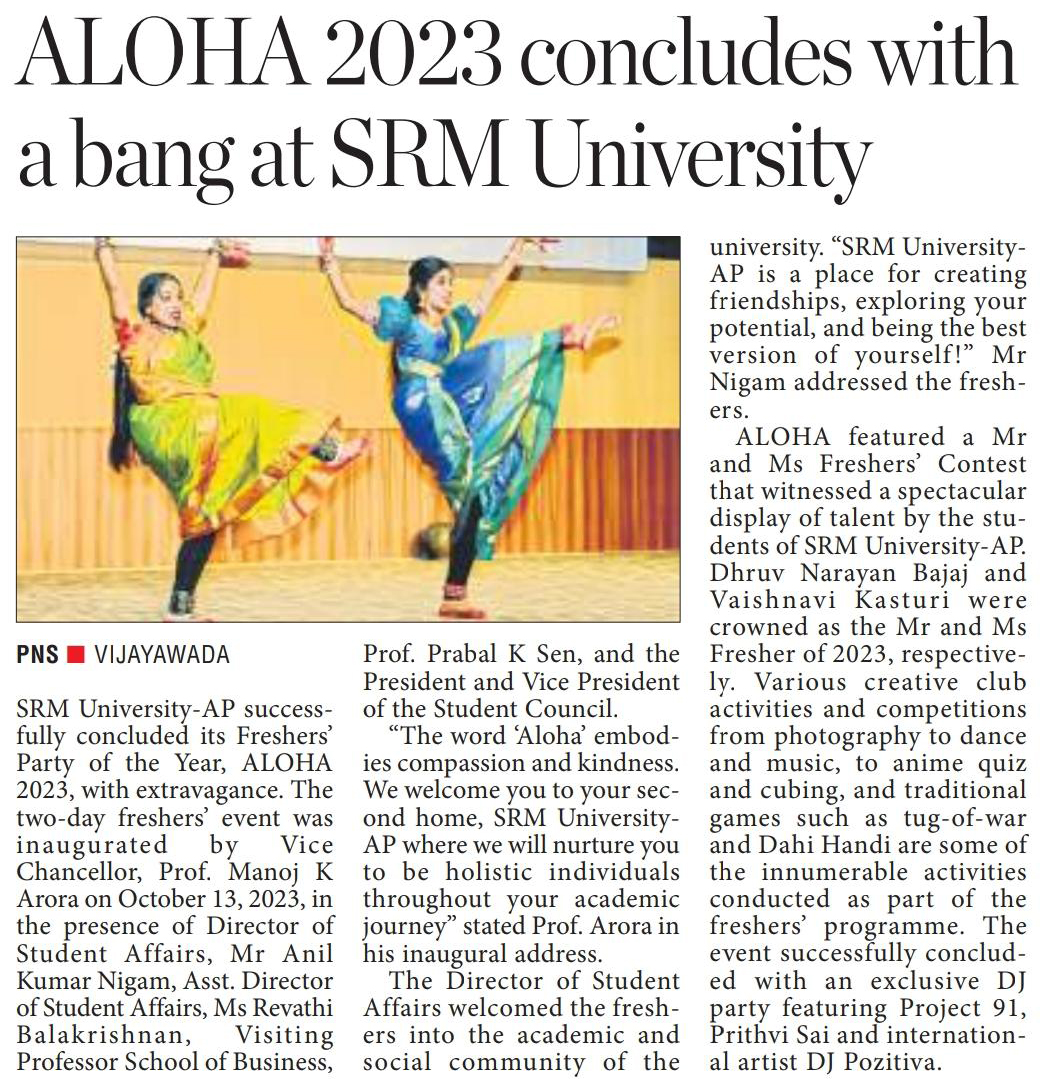
Andhra Jyothi
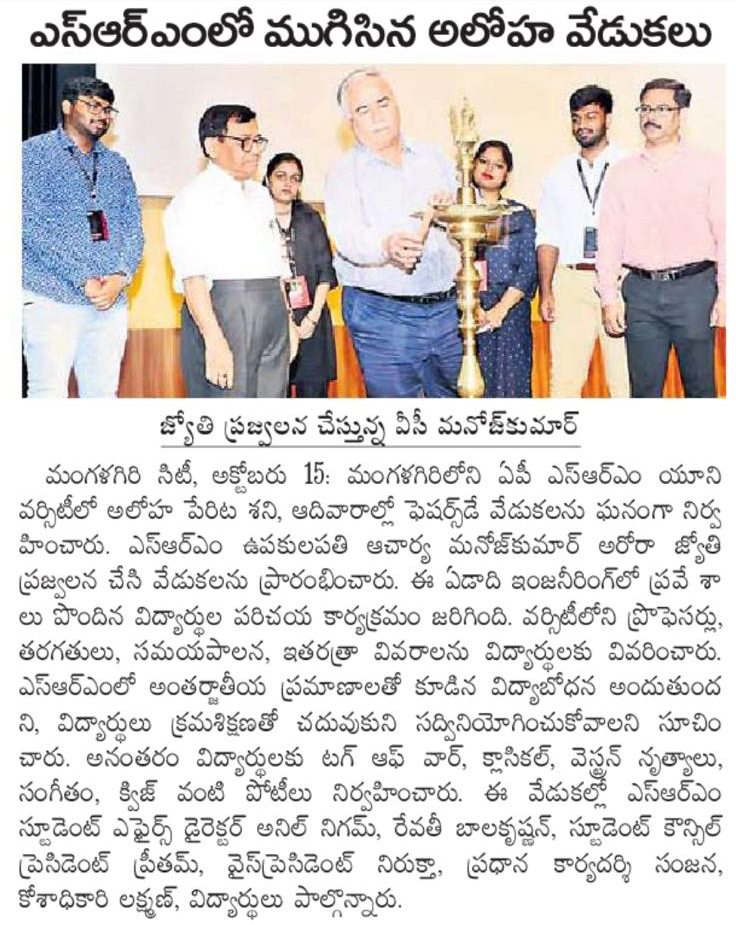
Andhra Patrika
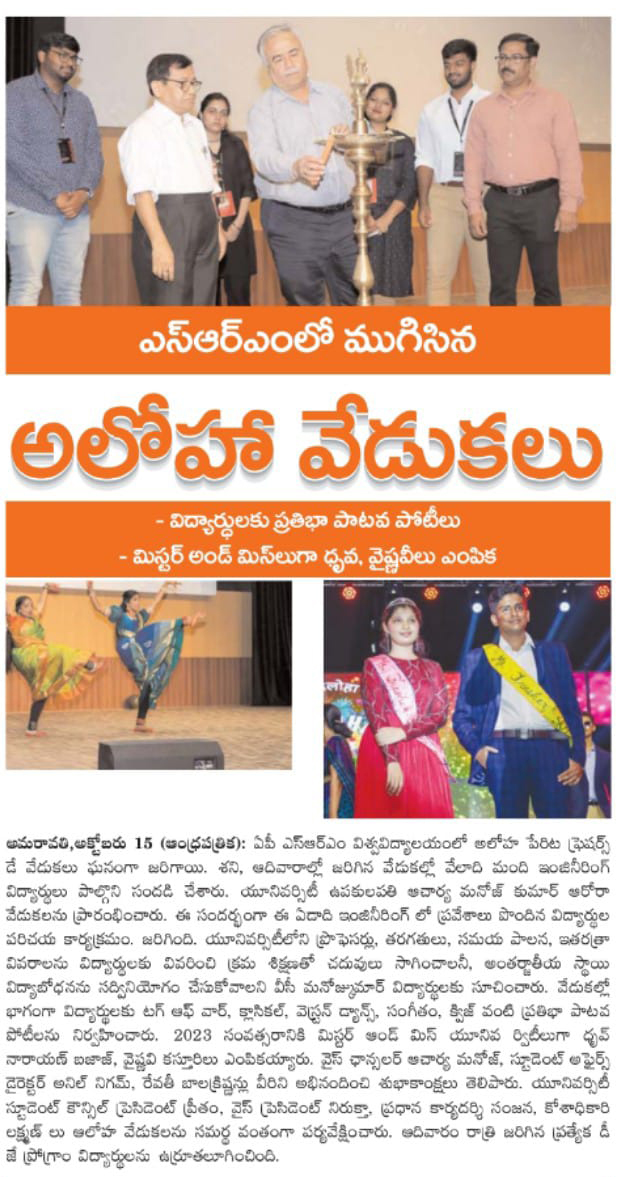
Eenadu
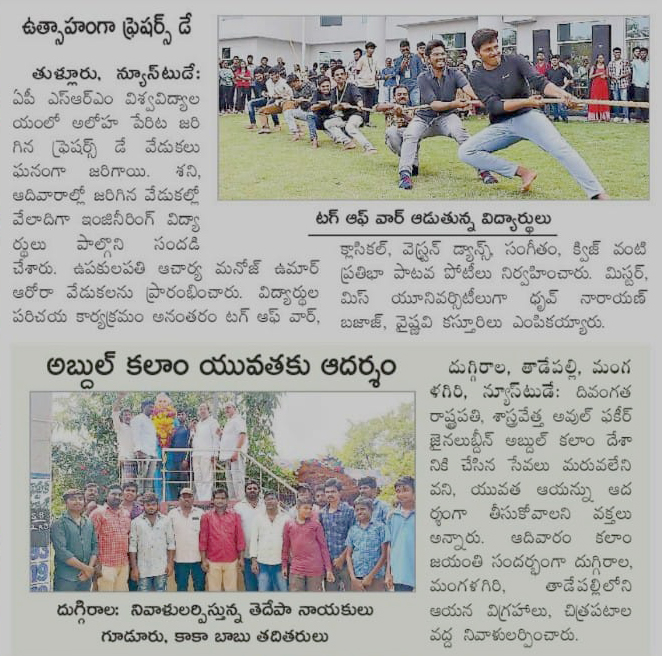
Visalaandhra
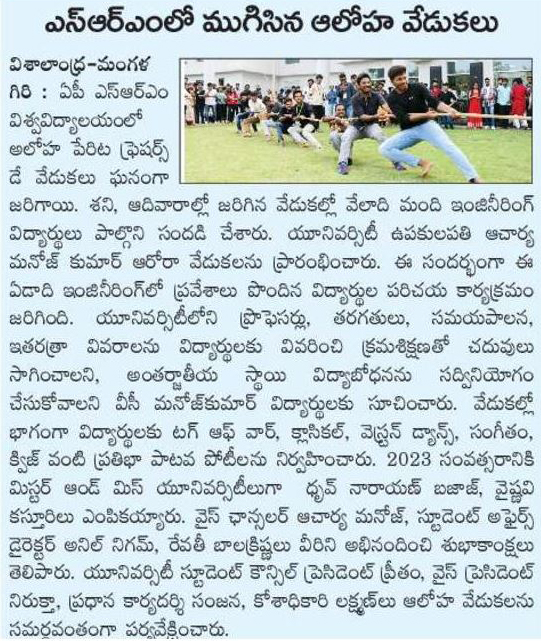
Sakshi
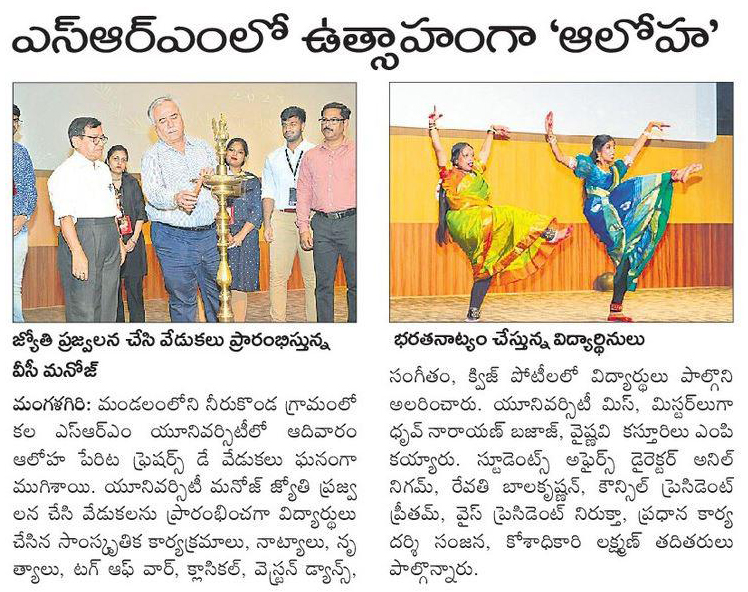
Vartha
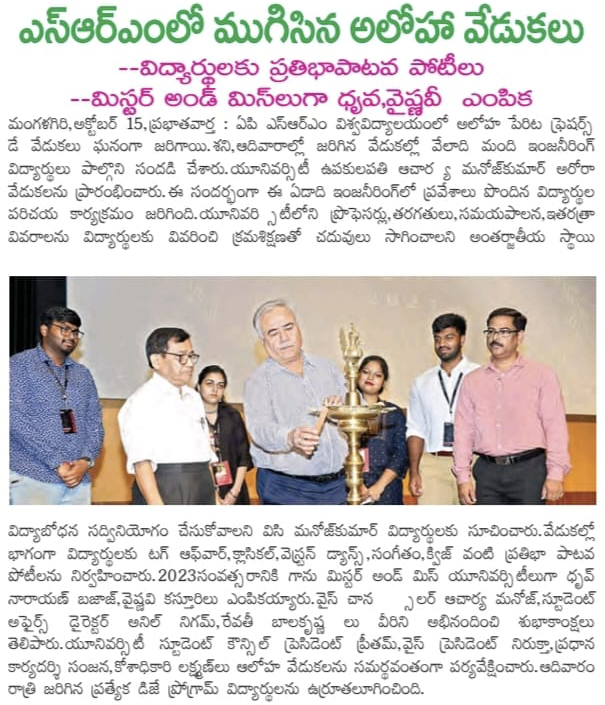
Power
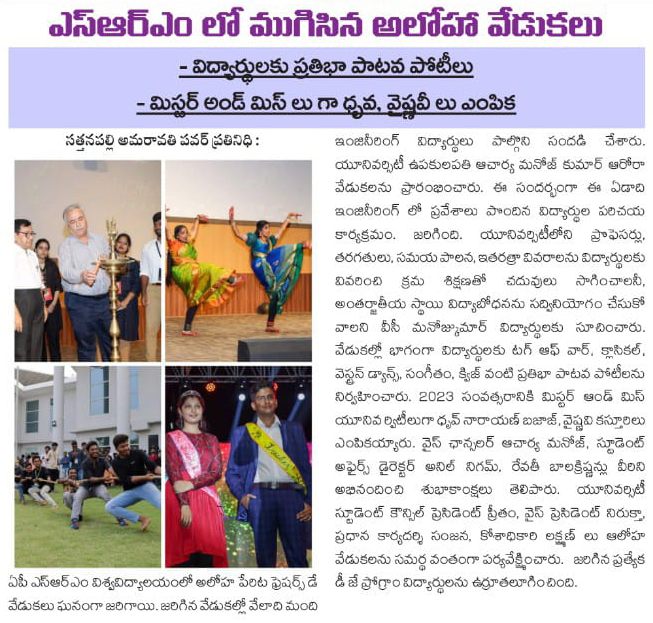
- Published in Newsroom
What are Exposure, Experience and Expertise – How to easily distinguish these
- Published in Thought Leadership
Rediscovering Tom and Jerry Through a Quantum Lense
- Published in Thought Leadership
Stanford University Names Five Faculty of SRM University-AP in the World’s Top 2% of Scientists
Deccan Chronicle
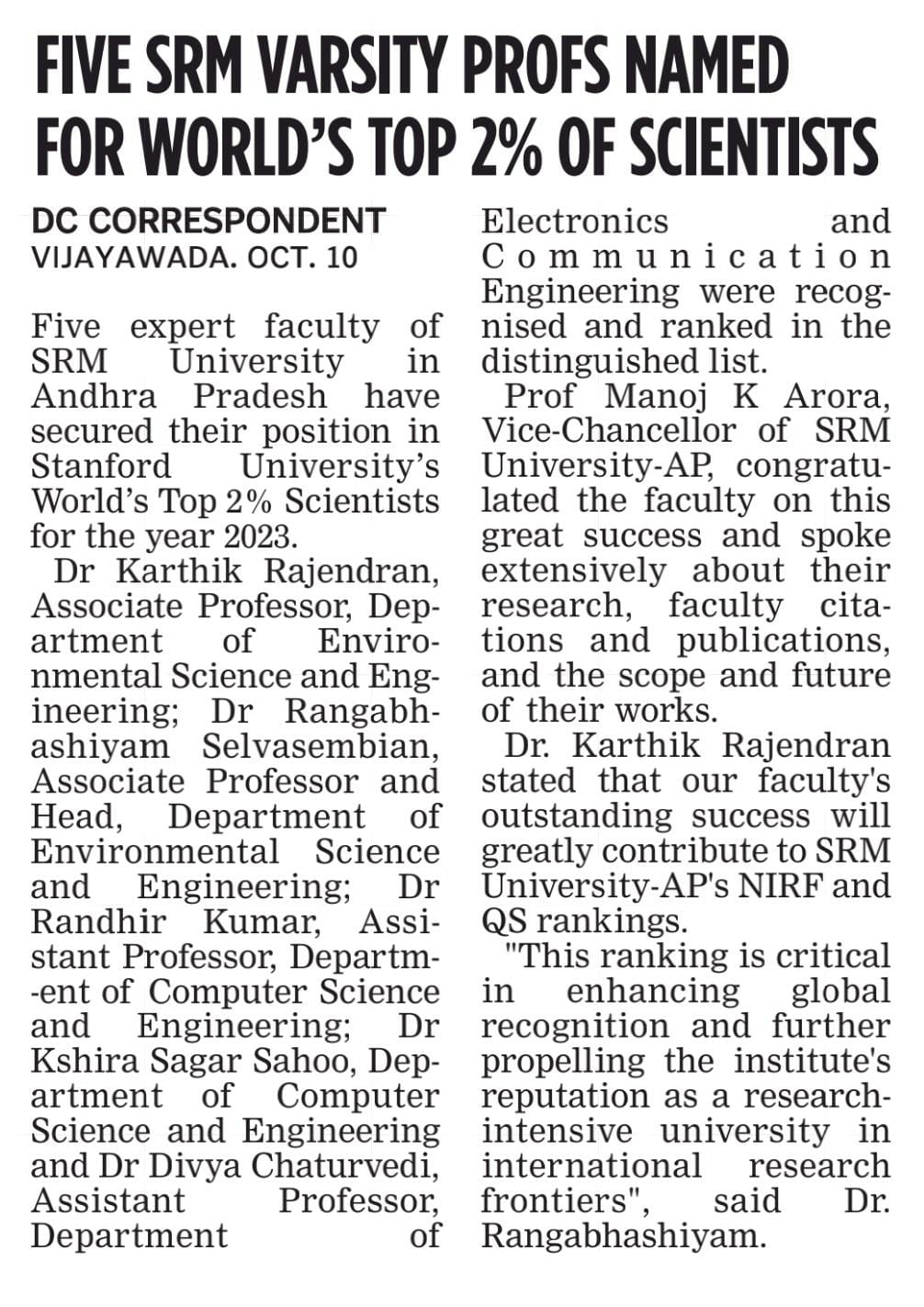
The Hindu
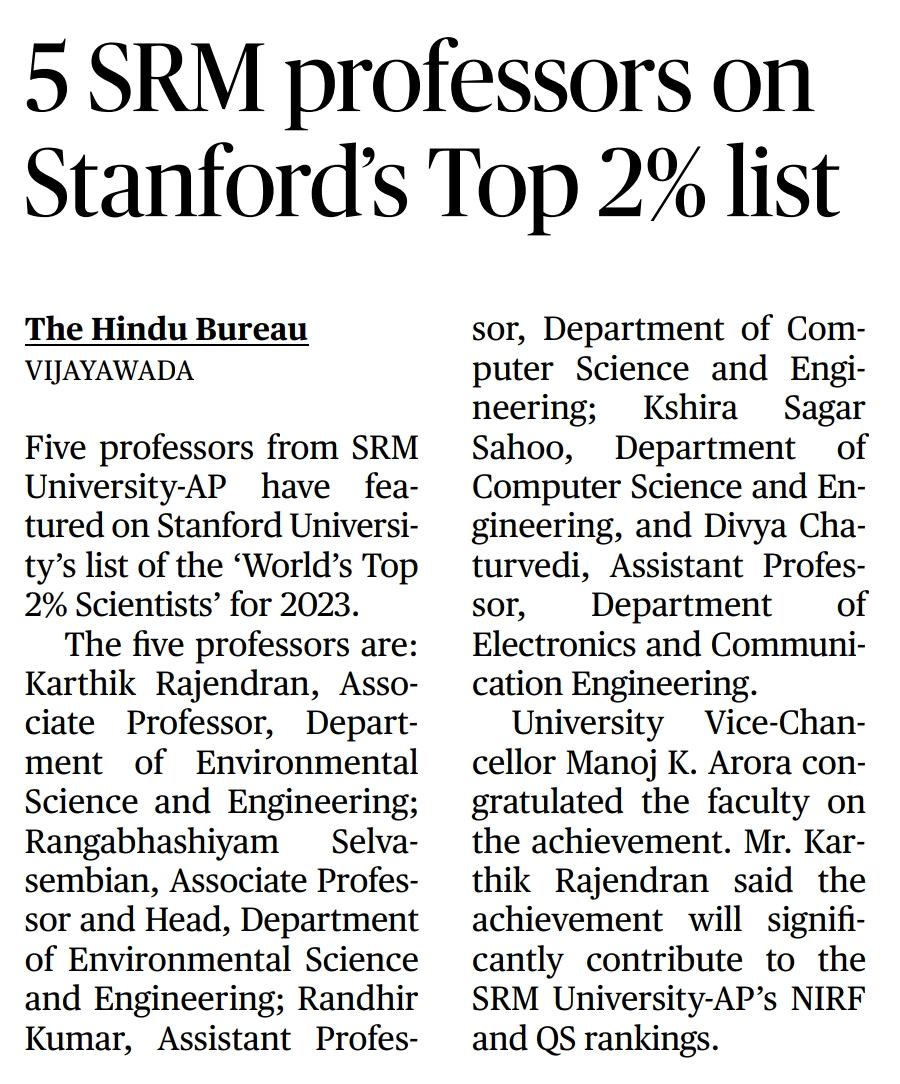
The New Indian Express

The Hans India
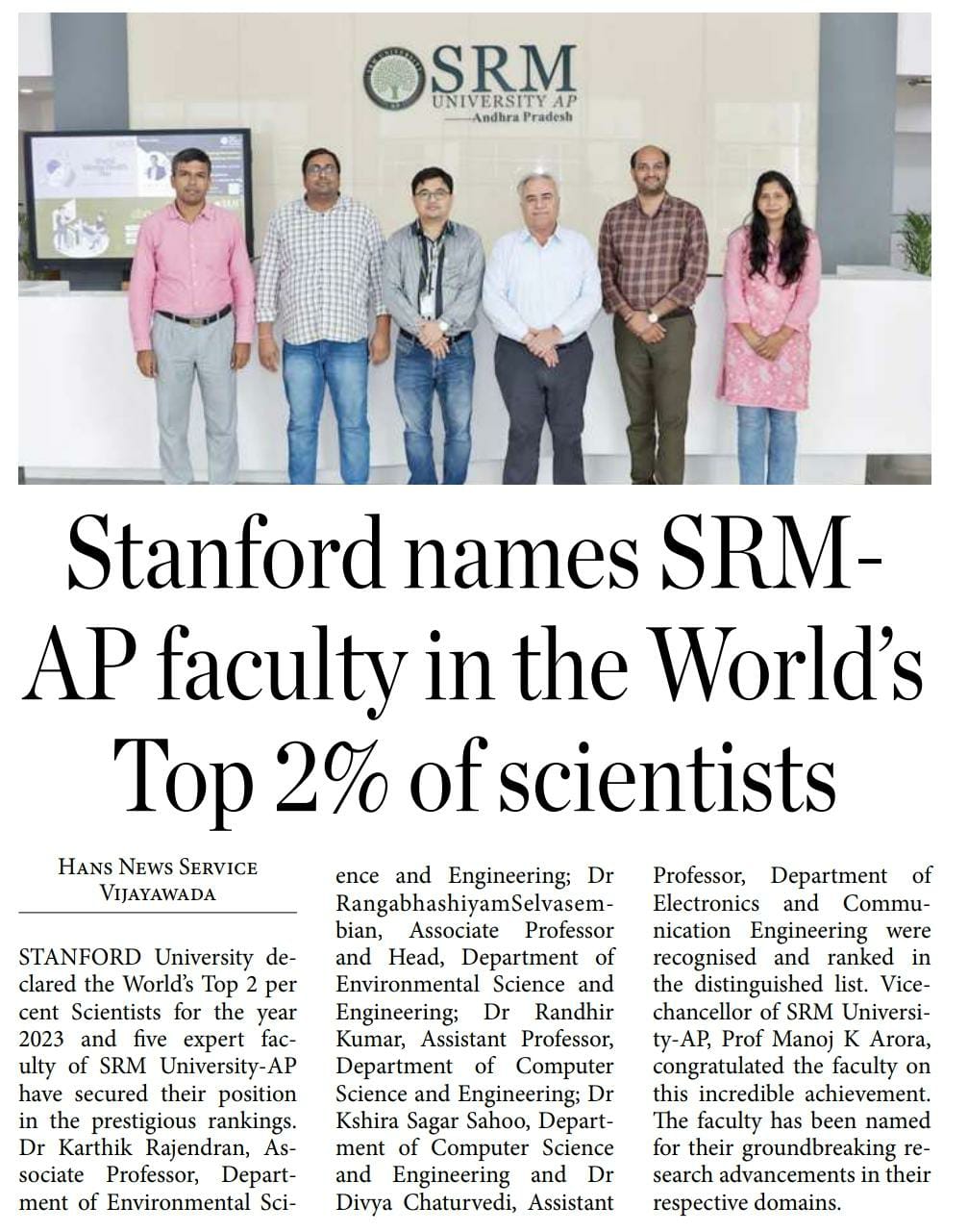
The Pioneer
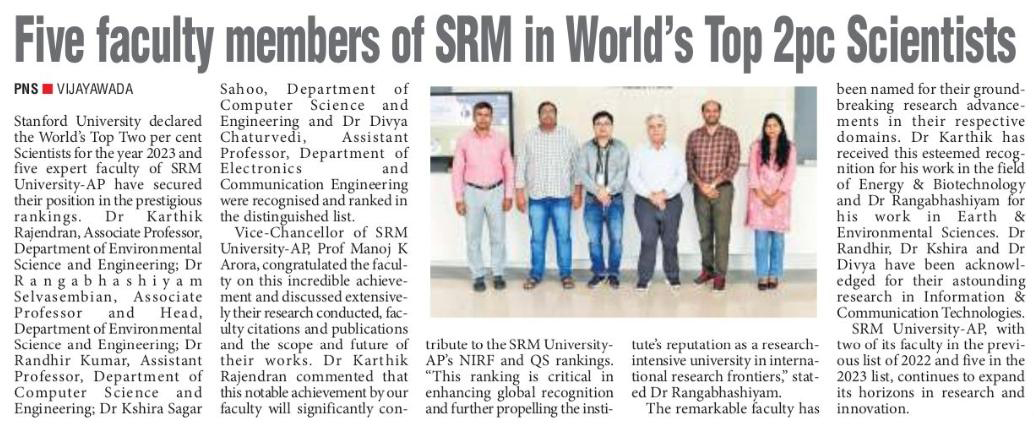
Andhra Jyothi
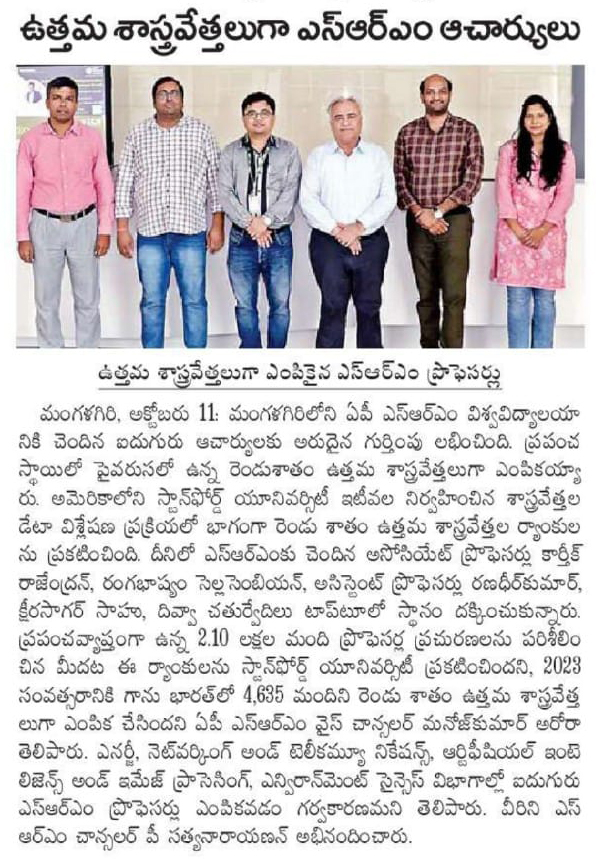
Andhra Patrika
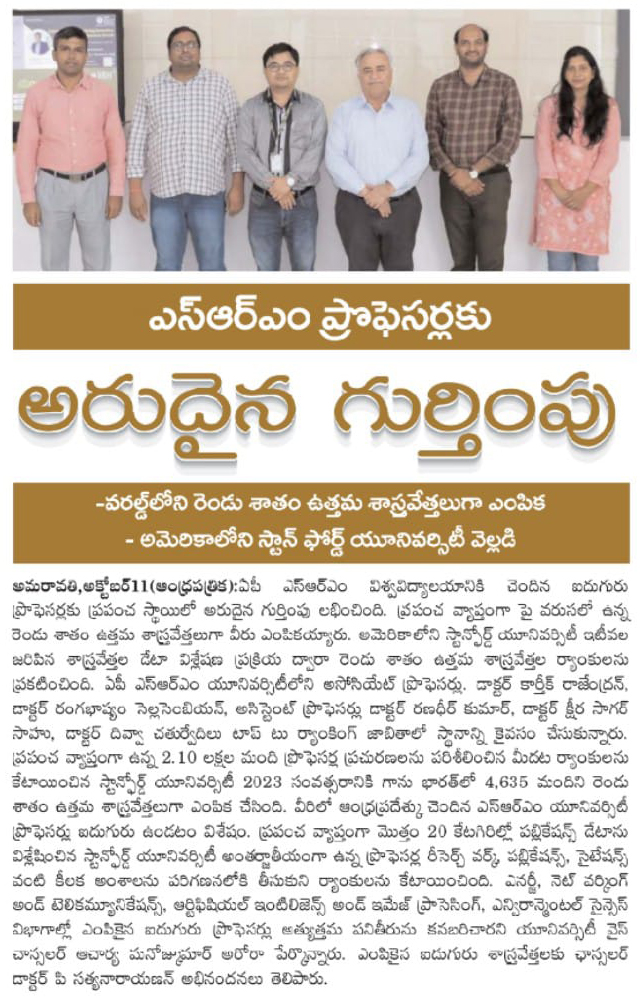
Prajasakthi
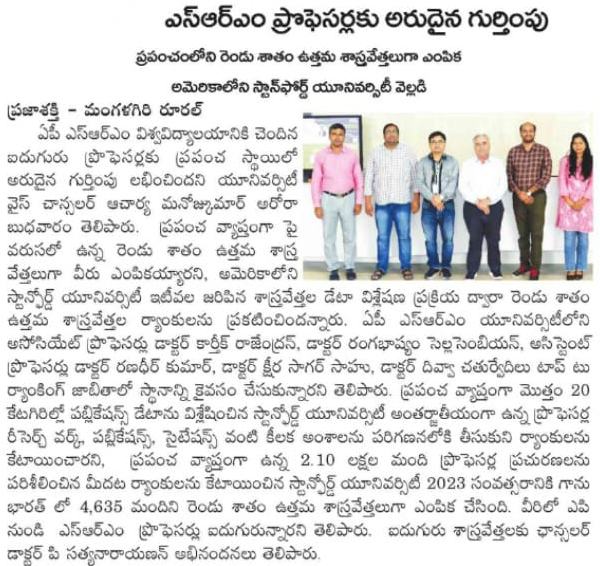
Vartha
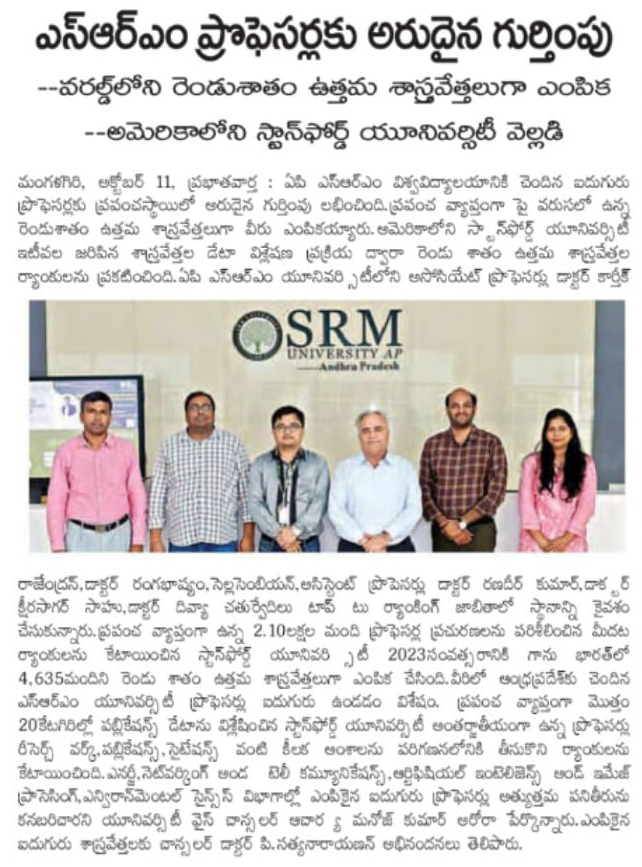
Andhra Prabha
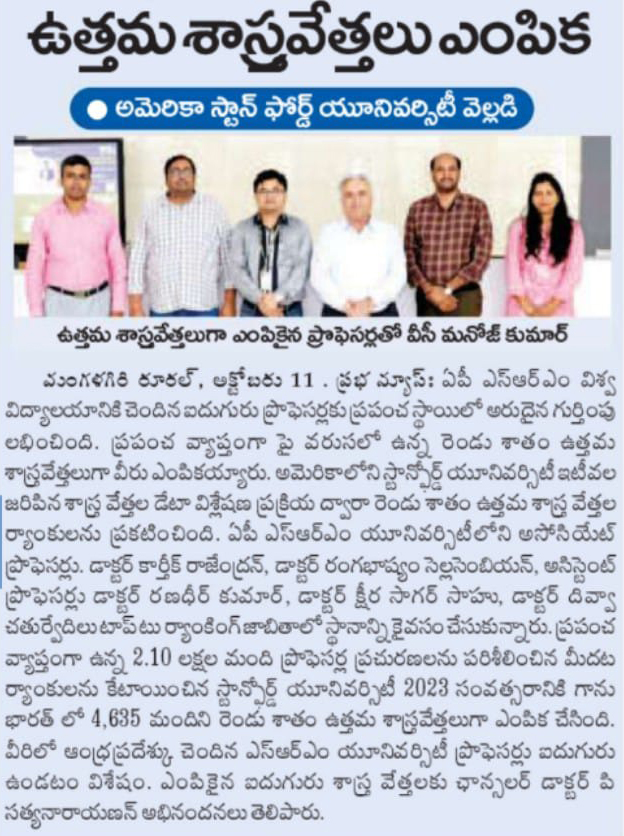
Surya
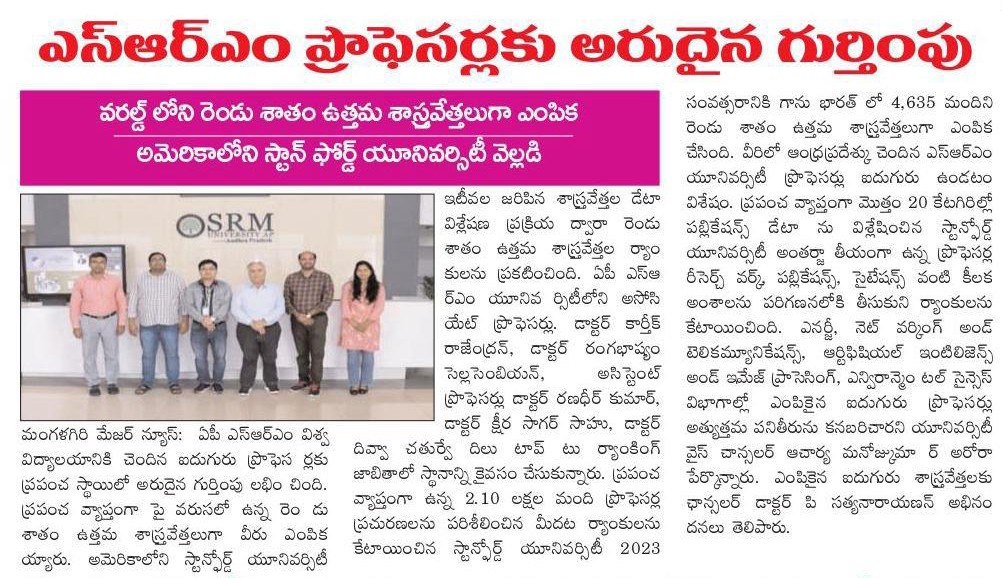
Visalaandhra
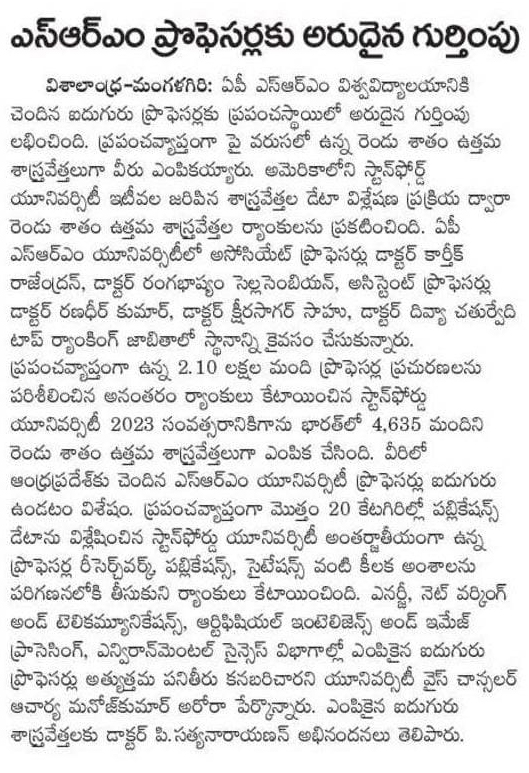
- Published in Newsroom
What Is Time And Its Relationship With The Quantum World?
- Published in Thought Leadership
Cracking the Code: MTech Computer Science Eligibility Criteria
Exploring the MTech Computer Science and Engineering Eligibility: Prerequisites & Entry Requirements
Are you someone who has just completed your BTech in Computer Science and Engineering? And you do not want to get into a job as you wish to explore the world of technology even more in order to gain mastery in it? If yes, then you must pursue MTech in Computer Science and Engineering.
MTech in CSE is a 2-year post-graduation degree in engineering. The course equips the students with the ability to understand the fundamentals and the advanced principles of science and technology. However, you must fulfil the MTech in CSE eligibility criteria.
In the sections below, you can find a detailed overview of what criteria are needed to get yourself enrolled for MTech in CSE.

Educational Qualification Needed for MTech in CSE
The educational qualifications typically required for admission to an MTech (Master of Technology) in Computer Science and Engineering programme include:
- Bachelor’s Degree: Candidates must hold a Bachelor’s degree in Computer Science, Computer Engineering, Information Technology, or a closely related field. The degree should be from a recognised university or institution.
- Minimum Percentage: Most universities and institutions require candidates to have a minimum aggregate percentage in their undergraduate degree, usually ranging from 55% to 60%. However, the exact minimum percentage requirement may vary between institutions.
- Relevant Background: A strong foundation in computer science subjects is essential. Candidates should have completed courses in areas such as data structures, algorithms, computer networks, operating systems, database management, programming languages, and software engineering.
- Entrance Exams: Many universities and institutions conduct entrance exams for admission to MTech programs. In India, popular entrance exams for MTech in Computer Science include the Graduate Aptitude Test in Engineering (GATE) and some state-level or university-specific entrance exams.
- GATE Qualification: GATE scores are widely accepted by several institutions for MTech admissions. Candidates with a valid GATE score in Computer Science or related disciplines may have an advantage during the selection process.
It’s important to note that MTech CSE eligibility criteria may vary between institutions and can change from year to year. Therefore, it is recommended that students check with the university or institution offering the MTech in Computer Science and Engineering programme to obtain the most accurate and up-to-date information regarding their eligibility requirements.
Subject Required to Pursue MTech in CSE
The subject requirements for eligibility for MTech (Master of Technology) in Computer Science and Engineering can vary between universities and institutions. However, here are some common subject areas that are often considered prerequisites or preferred background knowledge for admission to an MTech in Computer Science and Engineering programme:
- Computer Science Fundamentals: This includes subjects such as data structures, algorithms, computer architecture, operating systems, databases, and programming languages.
- Mathematics: Topics such as discrete mathematics, linear algebra, calculus, and probability theory are relevant to many areas of computer science.
- Programming: Proficiency in programming languages is typically expected, with a focus on languages commonly used in the field of computer science, such as C, C++, Java, Python, or others.
- Computer Networks: Basic knowledge of computer networks, protocols, and network architectures is often required, as computer networks are integral to many areas of computer science.
- Data Structures and Algorithms: Familiarity with various data structures and algorithmic concepts is important, as they form the basis for efficient problem-solving and software development.
- Database Management Systems: Knowledge of database concepts, SQL, and database design principles is often considered important, as databases play a significant role in many computer science applications.
Moreover, some institutions may provide bridging courses or foundation programmes to help students meet any subject requirements they may be lacking.
If you are confused about which university to go with for your advanced courses, such as MTech in Computer Science and Engineering, you can opt for SRM University-AP.
Master the World of Technology with an MTech in Computer Science and Engineering at SRM University-AP
SRM University-AP, is a private university located in the state of Andhra Pradesh, India. The University offers a wide range of undergraduate, postgraduate, and doctoral programmes across various disciplines, including engineering, management, science, humanities, law, and more.
The MTech in Computer Science and Engineering programme at SRM University-AP offers specialisations in Artificial Intelligence & Machine Learning, Data Science and Cyber Security. The curriculum is designed keeping in mind the industry’s demands. After completing the programme, students can choose to work in the industry or pursue a PhD. The course is taught by highly qualified faculty with overseas exposure to research and teaching.
MTech in Computer Science and Engineering Eligibility Criteria @ SRM University-AP
There is a specific MTech in CSE eligibility criteria at SRM University-AP. The candidates must have a degree or equivalent in:
- BE
- IT
- BTech in CSE
- SWE (or) MSc (IT/CSE) (or) MCA with GATE
Now, if you find yourself eligible to enrol for the MTech in Computer Science and Engineering, you must be thinking about the fee structure of the courses. You can find the related details in the below-discussed section.
MTech in CSE Fee Structure at SRM University-AP
Here are the details on the SRM University-AP MTech Computer Science and Engineering fee structure:
- The annual tuition fee for MTech in CSE is 1.5 Lakh rupees.
- As a scholarship, 100% of tuition is waived.
- Also, there is an additional admission fee of Rs. 10,000/-. This is non-refundable.
- Moreover, there is an additional training and development fee of Rs. 10,000/-
Apart from this, the University has a dedicated placement cell that assists students in their career development and placement activities. It has a strong network of recruiters from diverse industries. Moreover, SRM University-AP, offers a vibrant campus life with a range of extracurricular activities, clubs, and sports facilities. Students have opportunities to explore their interests, enhance their skills, and engage in cultural and social events. If you are looking for all of these, enrol at SRM University-AP now and accelerate your tech career.
- Published in Blog, Engineering
Unleash Your Tech Genius with Trending BTech CSE Subjects
Ignite Your Passion for Coding & Computers with Immersive BTech CSE Subjects
The emergence of computers has altered the way we communicate, make choices, and lead our lives. This revolution is evident across multitudes of domains, incorporating entertainment, medicine, transport, and education.
In the current scenario, Computer Science & Engineering (CSE), an amalgamation of Computer Science and Computer Engineering, stands as a significant paradigm shift. It has become the driving force behind technological innovations, shaping the world we inhabit.
As technology continues to thrive, CSE engineers have positioned themselves at the forefront of developing cutting-edge solutions, pushing the boundaries of what is possible. The demand for CSE engineers is soaring, thanks to advancements in data science, big data, artificial intelligence, and machine learning.
Also, as per the Bureau of Labor Statistics (BLS) report, employment rates for Computer Science Engineers are projected to grow by 5% between the years 2021 to 2031.
If you have excelled in your 12th-grade studies and possess a passion and knack for shaping the future with your exceptional skills, pursuing a BTech in Computer Science and Engineering would be an optimal choice.

What is a BTech in CSE?
A Bachelor of Technology in Computer Science and Engineering is an undergraduate degree of four years equipping aspiring candidates with in-depth knowledge and skill sets of computer science principles and computer engineering concepts to become highly skilled in Software, Mobile Applications, Programming languages, etcetera. In the span of 4 years, students will dwell and master multitudes of BTech CSE subjects, for example-
- Algorithms
- Data Structure
- Computer Networks
- Artificial Intelligence
- Programming
- Software Engineering
And so on!
There is no denying that the curriculum of BTech in CSE equips candidates with the desired skill sets that laid the foundation of their inspirational professional journey.
Is There Any Scope After Pursuing a BTech Degree in CSE?
Indeed, there is! Computer Science and Engineering (CSE) is an exponentially versatile and highly in-demand field with a massive scope of career opportunities. CSE encircles the design, development, and deep analysis of computer frameworks, applications and software. Below are the potential key areas that fall under the scope of Computer Science and Engineering courses:
- Cybersecurity
- Computer Networks
- Computer Architecture
- Operating Systems
- Database Management Systems
- Programming and Software Development
- Data Science and Big Data Analytics
- Web Development and Mobile Applications
- Artificial Intelligence and Machine Learning
As the field is constantly evolving and new technologies and domains emerge regularly, there are numerous career opportunities for CSE professionals in software development, IT consulting, research and development, data analysis, and cyber-security, to name a few.
What is the BTech Computer Science and Engineering Syllabus?
The BTech CSE subjects usually incorporate core subjects and electives, along with practical elements. However, the exact BTech CSE subjects semester-wise may vary depending on the university and chosen electives. Below are some of the many BTech Computer Science and Engineering subjects you will master during your course. Keep reading to know BTech CSE subjects in the 1st year till the 4th.
- Communicative English
- Single Variable Calculus
- Statistics
- Critical Thinking
- Discrete Mathematics
- Linear Algebra
- Operating System
- Software Engineering
Unveil Your Potential with BTech in Computer Science and Engineering Programme at SRM University-AP
One of the pioneers, SRM University-AP, solely aims to create and impart knowledge and come up with an idiosyncratic learning experience for aspiring candidates who are technologically advanced and have emerged as an efficacious resource to society.
At SRM University-AP, the Department of Computer Science and Engineering is at the forefront of the constantly evolving tech revolution, driven by a solid commitment to empowering and enabling students with the in-depth knowledge and skills required to thrive in the digital era.
With a dynamic curriculum designed to match the pace of technological advancements, the Department equips aspiring engineers with a deep understanding of cutting-edge software and hardware mechanisms.
Via hands-on experiences, collaborative projects, and industry interactions, candidates gain practical expertise, educating and training them to handle real-world challenges with precision.
Moreover, the Department fosters a culture of innovation, boosting students’ confidence to think and go out of their comfort zone. BTech in Computer Science and Engineering is amongst the most coveted programmes as the Department of Computer Science and Engineering offers research-based education and follows Active Learning to enhance the quality of learning.
The University has introduced high-tech laboratories to motivate students to take up interdisciplinary projects, providing students with a golden opportunity to get international exposure in reckoned institutions, such as:
- Northeastern University
- Flinders University
- The University of Wisconsin-Madison
- Asia University
The Department of Computer Science and Engineering at SRM University-AP wraps up several computer software as well as hardware topics which are taught by well-versed faculty. Some of the specialisations offered are-
- Internet of Things (IoT)
- Big Data Analytics
- Cyber Security
- Artificial Intelligence and Machine Learning
- Distributed and Cloud Computing
The BTech CSE students at SRM University-AP, are provided with a research-centric quality education that will help them succeed in the contemporary world. Additionally, the BTech CSE fee at SRM University-AP, can range from Rs. 33,500 to Rs. 3,35,000, depending on the merit of the students.
To Sum Up
A BTech in Computer Science and Engineering is an entranceway to a world of enthralling possibilities, where human beings can be at the forefront of technological advancements, drive innovation, and create a significant difference in the way we live, work, and connect with each other. So, don’t think much; enrol now at SRM University-AP and remould the technological world.
- Published in Blog, Engineering
Explore BTech in Mechanical Engineering Subjects in Detail
Design, Build, & Innovate with Cutting-Edge BTech in Mechanical Engineering
Mechanical engineering is a broad field with applications in many industries, including manufacturing, aerospace, automotive, and energy. The countries with the highest demand for mechanical engineers are China, the United States, Germany, France and now India due to the Make in India initiative.
Some sectors with high demand for mechanical engineers include Aerospace, Automotive engineering, Energy Sector, the Chemical industry, Electronics system design and manufacturing, Construction and Projects industry, Railway/Shipping industry.
The Bureau of Labor Statistics projects that the employment of mechanical engineers will grow by 4% from 2019 to 2029. This is about as fast as the average for all occupations.
If you are interested in the field, you can choose to study BTech in Mechanical Engineering subjects in your graduation, seeking a good career hereafter.
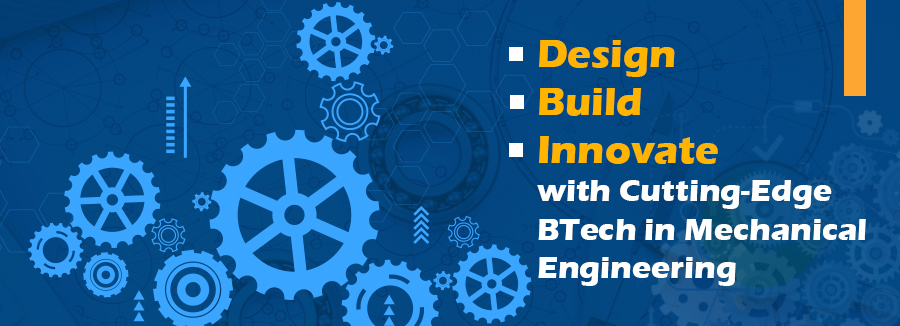
BTech in Mechanical Engineering Subjects
The specific subjects and their sequence in a BTech in Mechanical Engineering programme can vary depending on the university and curriculum. However, in the section below, you can go through the general overview of the year-wise subjects typically covered in a four-year BTech in Mechanical Engineering programme:
BTech Mechanical Engineering Subjects 1st Year
- Engineering Mathematics I
- Engineering Physics
- Engineering Graphics
- Computer Programming
- Environmental Studies
- Workshop Practice
- Engineering Mathematics II
- Basic Electrical Engineering
- Engineering Mechanics
- Basic Electronics Engineering
- Communication Skills
BTech Mechanical Engineering Subjects List 2nd Year
- Engineering Mathematics III
- Thermodynamics
- Fluid Mechanics
- Materials Science
- Manufacturing Technology
- Strength of Materials
- Kinematics of Machinery
- Electrical and Electronics Engineering
- Numerical Methods
- Environmental Science and Engineering
- 3D Printing
- Design thinking and product design
- Digital Manufacturing
BTech Mechanical Engineering Subjects List 3rd Year
- Heat and Mass Transfer
- Machine Design
- Dynamics of Machinery
- Industrial Engineering and Management
- Mechatronics
- Control Systems
- Finite Element Analysis
- Metrology and Measurements
- Elective Courses (e.g., Robotics, Automotive Engineering, Energy Conversion, etc.)
- IOT and Digital Twins for mechanical engineers
- AI and ML for mechanical engineers
BTech Mechanical Engineering Subjects 4th Year
- Advanced Thermal Engineering
- Mechanical Measurements and Instrumentation
- CAD/CAM
- Automation and Robotics
- Electric vehicles
- Additive manufacturing
- Project Work
- Elective Courses (e.g., Composite Materials, Computational Fluid Dynamics, Additive Manufacturing, etc.)
- Industrial Training
- Seminar and Technical Presentation
- Elective Courses
- Engineering Economics and Cost Analysis
Please note that this is a general guideline, and the specific subjects and their order may vary from one institution to another. Additionally, some institutions may offer elective courses and specialised tracks, allowing students to tailor their studies to their interests and career goals. It’s essential to consult the specific curriculum provided by the university you are interested in for the most accurate and up-to-date information.
Are BTech in Mechanical Engineering Subjects Tough?
Mechanical engineering is considered one of the most challenging undergraduate degrees. It’s also one of the most diverse fields of engineering. Mechanical engineers deal with the fundamental laws of physical nature, such as force, motion, and energy.
Some say that mechanical engineering is slightly tough because you have to study numerical-based questions. Others say that mechanical engineering is easy to study because you can see its real application in day-to-day life.
In short, mechanical engineering can be a little tough if you don’t like to do physical work or aren’t interested in doing experiments, building models.. Otherwise, mechanical engineering subjects are easy.
Embark on Your Journey to the World of Mechanical Engineering with the BTech Mechanical Engineering Programme at SRM University-AP
Mechanical engineering serves as a cornerstone for all branches of engineering, and the School of Engineering and Sciences at SRM University-AP, is dedicated to delivering top-tier education in the diverse realms of mechanical engineering. The esteemed faculty, renowned for their expertise and experience, engages in cutting-edge research to address the fundamental requirements of the world with innovative solutions.
At SRM University-AP, students have the opportunity to delve into multifaceted areas of mechanical engineering research, including materials and composites, thermodynamics and fluids, dynamics and control, and advanced manufacturing, among others.
Objectives of BTech Mechanical Engineering @ SRM University-AP
- To provide students with the highest calibre of education, nurturing their capabilities and honing their skills to shape them into globally competitive mechanical engineers.
- To uphold cutting-edge research facilities, fostering a collaborative atmosphere that inspires faculty, staff, and students to generate, scrutinise, employ, and share knowledge.
- To forge partnerships with premier R&D organisations, educational institutions, industry leaders, and alumni to excel in teaching, research, and consultancy endeavours.
- To offer students an academic environment characterised by excellence, leadership, ethical principles, and lifelong learning, essential for a successful and enduring career.
In a Nutshell
Pursuing a BTech in Mechanical Engineering opens doors to a world of innovation, problem-solving, and limitless possibilities. As you begin your educational journey, you’ll acquire a strong foundation in the principles of mechanics, thermodynamics, materials science, and more.
The programme equips you with the skills and knowledge needed to design, analyse, and optimise mechanical systems, laying the groundwork for a dynamic and rewarding career in various industries, from aerospace to automotive energy to manufacturing.
Moreover, the ever-evolving field of mechanical engineering offers endless opportunities for research, innovation, and global impact. So, if you have a passion for technology and a drive to shape the future, a BTech in Mechanical Engineering is your gateway to a world of boundless engineering possibilities.
- Published in Blog, Engineering


